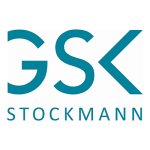Luxembourg has been increasingly gaining momentum as a financial centre in Europe. Its stable and strong economy, continued attribution of AAA rating for sovereign credit, rapid regulatory procedures, large network of double taxation treaties, quality of financial markets infrastructure, and legal framework are some of the characteristics to which Luxembourg’s attractiveness as a financial centre can be attributed.
With regard to capital markets infrastructure in Luxembourg, the operation of the Luxembourg stock exchange (LuxSE) and Clearstream, acting, among others, as central securities depositary in Luxembourg, further contribute to the success of Luxembourg as a financial centre.
Background to the LuxSE
The LuxSE operates a regulated market and an exchange-regulated alternative market named Euro MTF, which qualifies as a multilateral trading facility (hence the ‘MTF’) under the European Markets in Financial Instruments Directive (MiFID). In both these markets, LuxSE hosts more than 37,000 tradable securities in over 60 currencies.
Sovereign bonds (115 as of May 2022), investment grade and high-yield corporate bonds, Renminbi bonds, warrants and bonds issued via institutional EMTN programmes, and Islamic finance instruments constitute a small extract of the instruments listed and traded in the LuxSE. So too do equity instruments (29 listed entities with a market capitalisation of EUR billion as of December 31 2021).
LuxSE is attaching great importance to green finance. It operates the Luxembourg Green Exchange, a dedicated platform for sustainable securities, where the Grand Duchy of Luxembourg listed Europe’s first green sovereign bond. This wide variety of products provides investors with numerous choices when structuring their portfolios, thus enabling them to diversify their investments.
In terms of market infrastructure, LuxSE cooperates with Euroclear and Clearstream as central securities depositaries performing settlement functions. This enables cross-border settlements efficiently, since these organisations are the only international central securities depositaries in Europe.
Clearstream and LuxCSD play another pivotal role in promoting the efficiency of capital markets infrastructure in Luxembourg, since they are the only institutions connected with the TARGET2 system, enabling real-time gross settlement in central bank money across the EU (which is not the case for institutions outside the TARGET2 system that also settle on the basis of commercial bank money).
Legal framework
Apart from the special characteristics and structural advantages set out above, the Luxembourg market derives its attractiveness from its legal framework and the manner in which this allows financial instruments to be structured. Instruments governed under Luxembourg law, whether listed or traded over the counter, are generally trusted and considered to meet market standard characteristics.
It is noteworthy that European bodies like the European Stability Mechanism (ESM) or the European Investment Bank (EIB) frequently issue bonds governed by Luxembourg law. Special legislation on the provision of collateral or the creation of personal guarantees is highly valued in the context of the issuance of senior-secured corporate bonds. The sophisticated legal framework on securitisations, which has been tested for almost two decades, has made Luxembourg one of the largest securitisation markets in Europe.
Finally, general as well as tailored provisions of Luxembourg corporate law facilitate the issuance of convertible and hybrid instruments, which have been steadily increasing over recent years in Luxembourg.
Corporate bonds and the Collateral Law
Corporate bonds may take the form of benchmark or high-yield issuances depending on the return they offer to their investors and the corresponding risk they carry. Even though the legal framework established in Luxembourg serves all kind of corporate bonds, senior-secured bonds are the ones that benefit the most. Due to the risk that high-yield bonds carry, investors demand the provision of collateral provided either by the parent company or by other operating companies of the group. The provision of collateral is also valuable in cases where the bonds are not issued by the parent company of the group but by a dedicated Luxembourg special purpose vehicle. In this setting, investors are structurally subordinated, since the issuer does not have direct but only indirect access to the cash flows generated by the group’s business.
The type of the provided security varies in accordance with the structure of the transaction, but the most typical ones are share pledges on the shares of the issuer and receivables, and bank account pledges on the loans provided to group companies using the proceeds generated by the issue of the bond.
In that respect, Law of August 5 2005 on financial collateral arrangements (the Collateral Law), as amended, provides investor-friendly provisions for the creation of such securities relating to the simple manner of perfecting the securities and the various enforcement rights recognised to the pledgee. Most importantly, the pledgee benefits from a safe harbour regime protecting its rights on the pledged assets even in the event of the insolvency of the pledgor. In this respect it can enforce the collateral without the limitations of insolvency law.
High-yield bonds and the PPG Law
Guarantees also have a material role in the high-yield bond market. In the context of limiting the effects of structural subordination, and in order to strengthen the credit rating of the high-yield bonds, the issue of high-yield bonds is usually guaranteed by the parent and all or some of its subsidiaries, which are closer to the assets of the group.
The law of July 17 2020 on professional payment guarantees (the PPG Law) introduced a new form of guarantee. This guarantee may be adapted to the needs of each specific transaction, and its provisions receive full recognition under Luxembourg law, without risk of recharacterisation.
More specifically, the PPG Law introduced a new legal form of guarantee, going beyond the traditional distinction between suretyship and first-demand guarantee. In the traditional definition, suretyship constitutes an accessory obligation, the existence and enforceability of which depends on the status of the underlying guaranteed obligation, while first-demand guarantee creates an obligation to the guarantor that is independent from the underlying secured obligation.
The PPG Law introduced an optional (opt-in) contractual guarantee regime that allows the parties to structure their contract by combining features of the existing guarantee types, without them facing the risk of recharacterisation. The provisions of the PPG Law are now widely used in high-yield bond issuances and facilitate the structuring of deals.
The Securitisation Law
Along with the provisions of the Collateral Law and the PPG Law, which benefit financial players in the securitisation market, Luxembourg has provisions applying specifically to securitisation transactions. The Luxembourg law of March 22 2004 on securitisation undertakings (the Securitisation Law), as amended, is very flexible. It allows any type of securitisation transaction, by enabling market participants to complete them:
(i) On a true sale basis, whereby the securitisation vehicle acquires full legal title in relation to the underlying assets; or
(ii) By the synthetic transfer of the risk pertaining to the underlying assets through the use of derivative instruments including double layer structures with an acquisition and an issuing vehicle or through a guarantee, whereby the provisions of the PPG Law are also proven to be quite useful.
The notes issued by the securitisation vehicle may be untranched (in which all noteholders’ claims will rank pari passu) or tranched, with junior and senior noteholders. Single asset securitisation is also possible, whereby the securitisation vehicle securitises a risk pertaining to a single asset. Great flexibility is also provided with respect to the available form of securitisation vehicles which can be incorporated as a fund or company. The vehicles may be regulated or unregulated, and can include compartments to ring-fence the assets and liabilities of a securitisation transaction, separating them from other transactions within the same vehicle.
The Securitisation Law also guarantees the enforceability of, and prohibits the recharacterisation of, a true sale securitisation by simplifying the mechanisms for the assignment of the underlying assets to the securitisation vehicle.
The flexibility of this framework was further reinforced recently when, in the latest amendment of the Securitisation Law, the options for funding a securitisation transaction were broadened. In this amendment, the general reference of issuance of securities was replaced with the option to:
Issue financial instruments; or
Enter into any form of borrowing.
This amendment enhances legal certainty and allows securitisation vehicles to be financed with loans, securities, and instruments which do not qualify as transferable securities under foreign law. Additionally, Luxembourg securitisation undertakings may now securitise a pool of risks consisting of debt securities, financial debt instruments, or receivables which are actively managed, either by the undertaking itself, or by a third party. In practice, the new legal framework allows for securitisation of actively managed Collateralised Debt Obligations (CDOs) and Collateralised Loan Obligations (CLOs) in private placements.
Convertible bonds
At the same time, the Luxembourg market offers a favourable environment for the issuance of convertible bonds. Issuing such bonds usually entails the execution of numerous formalities, as their issuance essentially constitutes a conditional increase of the share capital. The Law introduced on August 10 1915 on commercial companies (the Companies Law), as amended, provides for a regime that facilitates and simplifies to a great extent the issuance of convertible bonds.
Under the concept of ‘authorised capital’, shareholders can authorise the management of the company to increase the share capital thereof, up to a predetermined amount. Such authorisation may be valid for a maximum of five years and is renewable. Through this mechanism, the conversion of the bonds does not require the convocation of the shareholders upon the conversion of the bonds in order to resolve on the capital increase. Instead, the management can proceed on its own with such an increase.
Additionally, the involvement of an auditor is not required as the subscription of convertible bonds does not constitute a contribution of capital in kind. The concept of authorised capital should be foreseen in the constitutive documents of the company, and this would usually require a shareholders’ resolution in the presence of a notary prior to the issuance of the convertible instrument. In this respect, another favourable provision of Luxembourg law is that shareholders and/or managers can empower under private seal and without the need to appear in front of another notary, notary clerk, or a third person, who would then present in front of the Luxembourg notary and sign the notarial deed on their behalf.
This possibility is especially useful in cases where shareholders and/or managers are located outside of Luxembourg. Along with convertible bonds, a Luxembourg-based issuer can also issue hybrid bonds, which constitute instruments with perpetual maturity or conversion clauses and which aim to strengthen the capital adequacy of their issuer. In contrast to convertible bonds, hybrid bonds are usually governed by foreign law (usually that of England and Wales).
Initial Public Offerings (IPOs)
Luxembourg is increasingly becoming the jurisdiction of choice for initiating IPO transactions. Luxembourg vehicles are preferred to other vehicles for corporate governance reasons, due to the increased flexibility of the Companies Law compared with other jurisdictions. The most common corporate form is the public limited liability company (société anonyme - SA) due to various factors such as the free transferability of SA shares, the limited liability of its shareholders, and flexibility on corporate organisation.
An IPO may also be structured through a partnership limited by shares (société en commandite par actions - SCA). In this type of corporate vehicle, the control of the company can be separated from the shareholding if, for example, a general partner is appointed manager and cannot be replaced without this general partner’s consent.
Additionally, Luxembourg’s Commission de Surveillance du Secteur Financier (CSSF), which is responsible for financial regulation in Luxembourg, is usually preferred by market participants when it comes to the approval of a prospectus. Prospectus approval is a sine qua non prerequisite for a company to become listed in the regulated market. Indeed, the CSSF is one of the most sought-after competent authorities with respect to the approval of prospectuses, with approximately 1200 documents approved during the last year.
Luxembourg’s financial market
To conclude, the structure of the Luxembourg economy and financial market increases its attractiveness year-on-year. In the past, it has proved its resilience and robustness by managing to successfully overcome financial and economic difficulties that affected economies and financial markets globally.
In today’s world, Luxembourg demonstrates its innovative spirit by implementing laws, bills of law, and novel regimes catering for the digitalisation of the financial markets. The Luxembourg financial market has been recognised as an innovative hub for fintech companies, signalling that it has already gained a position in that segment of the financial sector which is anticipated to play an important role in the future of the financial markets.





